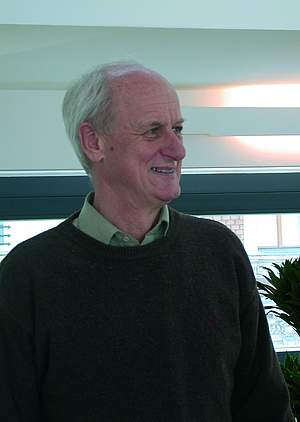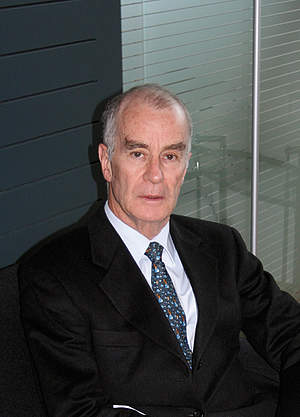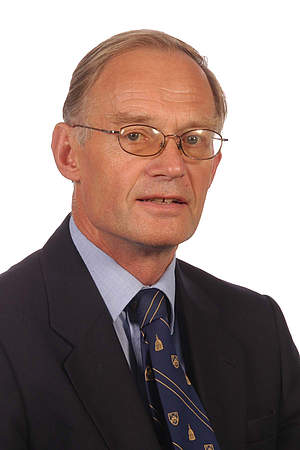Scientific Committee
In the early days of the EFNS we were fighting for the survival of the organization. The ENS hosted large and successful congresses and we were forced to have the same as described above. One way of generating activity in-between meetings and at the same time ascertain wide support was by creating the scientific committee. For each of the major subfields of neurology a scientist panel was created consisting of an expert from each of the member countries. The chairs of the scientist panels then formed a scientific committee which I had the privilege to create and chair during my time as vice-president 1991 - 1995. With approximately thirty-five different subfields and an equal number of countries, almost one thousand people would be enrolled in the scientist panels under the scientific committee. This was obviously a major organizational task. We asked all national neurological societies to appoint members to the thirty-five different panels and, as usual in voluntary work, some did and some did not. Those who did sometimes misunderstood and appointed people who were not at all experts and others suggested people only for some of the panels. Difficult as it was, we got enough response to start the work in the scientific committee but what should these scientist panels do in addition to just supporting the EFNS? The panels were and continue to be an invaluable resource of people with expertise. Whenever the EFNS needs experts for something, they can be drawn from the membership of the scientist panels. The panels were also asked to form task forces. A task force analyzes a particular problem and produces a report to be published in the European Journal of Neurology. Furthermore, scientist panels give input to the programs of EFNS congresses. The EFNS did not have much administrative support in those days. My administrative support was provided by my own secretary until Lisa Müller joined the EFNS and took responsibility for the administration of the scientist panels. We had planned that membership should be appointed by the national neurological societies but because many people did not response to emails and others appointed were not at all experts, it became clear that we had to change from national appointment to national nomination. The chairperson of the scientific committee then appointed and could dismiss inactive members and appoint others. My period as chairperson of the scientific committee was very much a period of development, experimentation and streamlining of this monster committee. However, the committee was by and large functioning and was a valuable asset for the EFNS when professor Dieter Heiss took over after me and very ably continued the work.
By Jes Olesen
Chairpersons

In the early days of the EFNS we were fighting for the survival of the organization. The ENS hosted large and successful congresses and we were forced to have the same as described above. One way of generating activity in-between meetings and at the same time ascertain wide support was by creating the scientific committee. For each of the major subfields of neurology a scientist panel was created consisting of an expert from each of the member countries. The chairs of the scientist panels then formed a scientific committee which I had the privilege to create and chair during my time as vice-president 1991 - 1995. With approximately thirty-five different subfields and an equal number of countries, almost one thousand people would be enrolled in the scientist panels under the scientific committee. This was obviously a major organizational task. We asked all national neurological societies to appoint members to the thirty-five different panels and, as usual in voluntary work, some did and some did not. Those who did sometimes misunderstood and appointed people who were not at all experts and others suggested people only for some of the panels. Difficult as it was, we got enough response to start the work in the scientific committee but what should these scientist panels do in addition to just supporting the EFNS? The panels were and continue to be an invaluable resource of people with expertise. Whenever the EFNS needs experts for something, they can be drawn from the membership of the scientist panels. The panels were also asked to form task forces. A task force analyzes a particular problem and produces a report to be published in the European Journal of Neurology. Furthermore, scientist panels give input to the programs of EFNS congresses. The EFNS did not have much administrative support in those days. My administrative support was provided by my own secretary until Lisa Müller joined the EFNS and took responsibility for the administration of the scientist panels. We had planned that membership should be appointed by the national neurological societies but because many people did not response to emails and others appointed were not at all experts, it became clear that we had to change from national appointment to national nomination. The chairperson of the scientific committee then appointed and could dismiss inactive members and appoint others. My period as chairperson of the scientific committee was very much a period of development, experimentation and streamlining of this monster committee. However, the committee was by and large functioning and was a valuable asset for the EFNS when professor Dieter Heiss took over after me and very ably continued the work.

I tried to motivate the Scientific Panels to set up groups consisting of representatives of each country in the individual specialty. Some of these panels and their chairmen were very active in setting up co operations, in organizing or contributing to teaching courses and in producing guide lines which were published in the European Journal of Neurology. However, in a considerable number of panels all the efforts to push them into activity were unsuccessful, and often also the replacement of the panel chair did not help. The burden of chairing both committees was rather big. And therefore I was grateful that Richard Hughes accepted to chair the Scientific Committee in 1999.

Professor Richard Hughes was Chairman of the Scientific Committee from 1999 to 2005. During this time he held this position of Deputy Head or Head of the Department of Clinical Neuroscience of the King’s College London School of Medicine and was also the Coordinating Editor of the Cochrane Neuromuscular Disease Review Group.
The Scientific Committee advises the Management Board of the EFNS on scientific matters, including offering advice to the Programme Committee and the Editors of the European Journal of Neurology. Its principal task is overseeing the activities of the Scientific Panels. During Professor Hughes’s Chairmanship, the Scientific Committee took on the task of developing the EFNS guidelines further. They developed and published guidance for the development, referring and dissemination of the guidelines. They initiated, undertook the peer review of and edited 40 guidelines. These were finally collected into the European Handbook of Neurological Management edited by Professor Hughes himself with Professor Michael Brainin from Austria and Professor Nils Erik Guilhus from Norway. Professor Hughes was also Vice President of the EFNS from 2001 to 2005 and is currently President of the international Peripheral Nerve Society.

Nils Erik Gilhus has been a Professor of Neurology at University of Bergen and a consultant neurologist at Haukeland University Hospital since 1987. He is head of Department of Clinical Medicine, University of Bergen, and was Faculty dean 2003-2005. His main research interest is neuroimmunological disorders. He is a member of the management committee of the European School of Neuroimmunology and World Federation for Neurorehabilitation.
It should be a major aim for EFNS to have active scientific panels acting as powerhouses in EFNS and European neurology. Task forces produce guideline documents to improve treatment and diagnostic work in European neurology, but the panels should at the same time be a basis for European research initiatives and cooperation at the European level. The scientific committee aims at being an important tool for expansion of EFNS, for research activity and for improving health at a joint European level.

no personal remarks